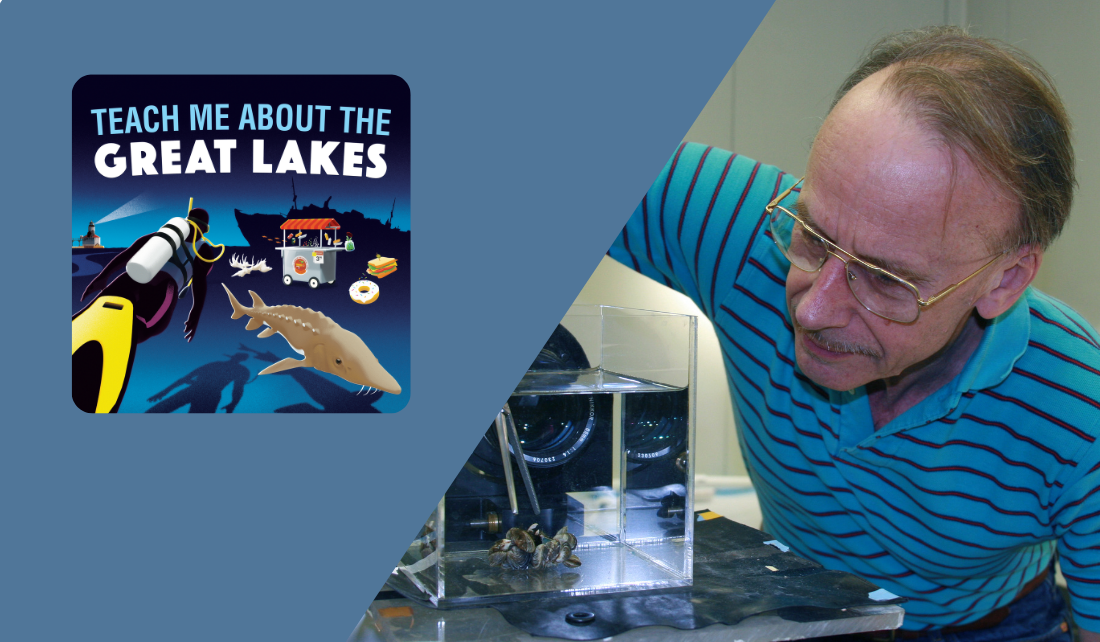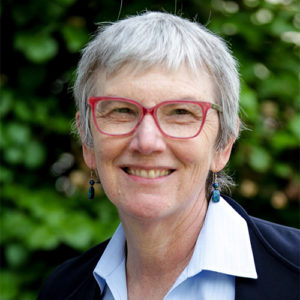
Great Lakes scientists from all over the basin came together online for the second virtual International Association for Great Lakes Research (IAGLR) conference in May, so the hosts of Teach Me About the Great Lakes took the opportunity to interview the conference’s two top award winners.
In this podcast episode—“Science Is a Team Sport”—Illinois-Indiana Sea Grant’s Stuart Carlton and Carolyn Foley interview Dr. Henry “Hank” Vanderploeg and Margaret Lansing, who were recognized for their accomplishments at the NOAA Great Lakes Environmental Research Laboratory (GLERL). They talk about what makes for good science collaboration and communication.

Hank Vanderploeg
Vanderploeg, a research ecologist and GLERL’s Ecosystem Dynamics Branch Chief, received IAGLR’s Lifetime Achievement Award for his work on invasive invertebrates. He told host Carlton that his interests developed at a conference when he was “asked by the organizers to understand and then predict the consequences of a wave of invasive species that was likely to have a significant impact on the Great Lakes.” Since then, Vanderploeg has come to understand the complicated ecology of invasive species in the Great Lakes, and he warns about new creatures well on their way.

Margaret Lansing
Lansing, GLERL’s Information Services Branch Chief, received the Jack Vallentyne Science Communication Award for important and sustained efforts to inform and educate the public and policy on Great Lakes issues. For over 30 years, she has created ways for science communication to transcend disciplinary journals and reach the public. In this episode, she shares how her interest in communication developed and why public knowledge about the Great Lakes and science in general is so important.
Teach Me About the Great Lakes is a monthly podcast in which Carlton—a social scientist who grew up in the South near the Gulf of Mexico—asks people to explain the biology, ecology and natural history of the Great Lakes. A new episode will be released on the first Monday of each month. The latest episode is embedded below.
Love this episode and want to hear more in the future? Subscribe on Apple Podcasts or Spotify, or use the RSS feed in your favorite podcast player.
If you have questions you want answered about the Great Lakes, reach out to Stuart Carlton at jsc@purdue.edu.
Illinois-Indiana Sea Grant (IISG) is a part of University of Illinois Extension and Purdue Extension.

